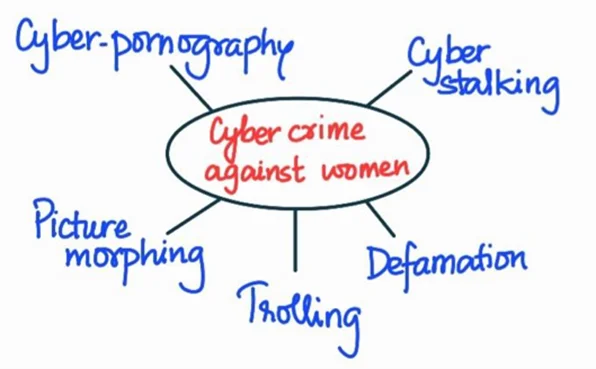Answer:
| Approach:
Introduction
- Define cyber crime and its significance in the context of the modern, digitized world.
Body
- Discuss the types of cyber crimes, with examples.
- Identify and mention the measures required to combat cyber crimes.
- Do provide examples.
Conclusion
- Conclude, reiterating the importance of the proposed measures in safeguarding against these crimes.
|
Introduction:
Cyber crime, defined as unlawful acts done using computers or the internet, is a serious issue in today’s highly digital world. Its importance lies in its ability to harm individuals, businesses, and even countries, making it a major concern for everyone. According to a report by Cybersecurity Ventures, cybercrime is projected to cost the world $10.5 trillion annually by 2025, amounting to approximately 10% of the global GDP, underscoring its massive economic impact.
Body:
Different types of cyber crimes:
- Phishing: Cyber criminals trick individuals into revealing personal information through deceptive emails or websites. For instance, the 2020 ‘Free COVID Test’ phishing scams in India used fear of the pandemic to dupe users.
- Identity Theft: It is the unauthorized use of someone’s personal data. For example, the 2019 incident in Bengaluru where a man’s identity was stolen to create a fake passport.
- Cyber Stalking: The use of the Internet to harass or intimidate someone. Many such cases, like the one in Delhi (2020), have resulted in the harassment of women online.
- Hacking: Unlawfully accessing or altering data in a system. For example, the 2018 Cosmos Bank incident in Pune, with a loss of about 944 million INR.
- Malware: Malicious software, including viruses and ransomware, can cause widespread damage.
- Cyber Terrorism: Acts of terrorism executed through the digital medium.

To combat cyber crime, several measures are imperative:
- Public Awareness: Regularly disseminate information on new types of cyber crimes and prevention measures, much like Kerala Police’s Cyberdome project.
- Strengthen Legal Framework: India has the IT Act (2000), but there is a need for regular updates to include emerging threats.
- Cyber Security Infrastructure: Develop robust cyber security systems to detect and neutralize threats, akin to Indian Computer Emergency Response Team (CERT-In) initiatives.
- International Cooperation: Cyber threats are not limited by borders, hence global collaboration is crucial, like India’s active participation in the Budapest Convention on Cybercrime.
- Law Enforcement Training: Regularly update the skill set of law enforcement agencies to tackle evolving cyber threats, such as Maharashtra’s initiative to train police in cyber crime detection.
Conclusion:
Cyber crime represents a significant threat in our interconnected world, capable of disrupting not only individual lives but also national security. Therefore, comprehensive strategies encompassing legislative measures, international cooperation, education, public-private partnerships, and technological advancements are paramount to safeguard our digital frontier.
